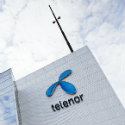Also in today's EMEA regional roundup: KPN's Q3 dented by legacy services; Nokia extends smart grid contract in China; Vodafone gets busy in Turkey.

Also in today's EMEA regional roundup: KPN's Q3 dented by legacy services; Nokia extends smart grid contract in China; Vodafone gets busy in Turkey.
Telenor dodged a bullet in Q3, as the impact of increased energy costs on its third quarter of 0.4 billion Norwegian kroner (US$38.7 million) was more than offset by a one-time fillip worth NOK0.6 billion ($58 million) from the High Court reversal of a tax on mobile phone SIM cards for the period from 2014 to 2020. Total reported revenues were NOK28.4 billion ($2.7 billion), an increase of NOK1 billion ($96.8 million) on the same period last year. Service revenues increased by 2.5% on an organic basis. Reported EBITDA before other items was NOK 13.1 billion ($1.26 billion), an increase of 1.6%. Net income, however, was dented by currency losses of NOK2.4 billion ($232 million), mainly as a result of the strengthening of the US dollar against the krone. Figure 1:
 (Source: Telenor)
(Source: Telenor)Dutch incumbent operator KPN saw adjusted EBITDAal (earnings before interest, tax, depreciation and amortization, after leases) rise 1.8% year-on-year, to €618 million ($619 million), on adjusted revenues that were up 1.9%, to €1.33 billion ($1.33 billion). However, steeply declining service revenues from KPN's legacy fixed-line business meant that consumer service revenues decreased by 0.8% overall. During the quarter, KPN added 76,000 households to its fiber footprint, activating 69,000 households on its own infrastructure. The company confirmed its full-year outlook for 2022, though it warned about the effects of inflation on EBITDAal in the next financial year.
Spotify, the Sweden-based audio streaming giant, continues to add subscribers of both the paying and non-paying variety. The number of so-called Premium subscribers rose by 13% during the third quarter, to 195 million, while the freeloaders who put up with the adverts climbed 24% in number, to 273 million. Average revenue per user in the paid-for segment grew by 7%, to €4.63 ($4.64). Total revenues reached €3.03 billion ($3.03 billion), a climb of 21% year-on-year, while gross profit was up 12%, to €750 million ($752 million).
Nokia has extended its smart grid gig with the State Grid Corporation of China (SGCC), agreeing to supply its optical transport network (OTN) technology to the world's largest power utility. SGCC will deploy Nokia's backbone box of tricks across Hubei, Hunan and Jiangxi provinces.
Vodafone has begun installing disaggregated cell site gateway routers on its live network in Turkey, a way, the operator says, of cost-effectively upgrading 4G cell sites to 5G and bringing new sites online. The routers consist of hardware and software that can be sourced independently from a number of vendors and are based on open architecture and standard APIs. In a separate move, Vodafone has also deployed Ericsson Security Manager on its Turkish network, providing automated security management, compliance monitoring and ensuring consistent security policies across the network.
UK mobile operator EE is venturing into the smart home security market, teaming up with Verisure to offer home security bundles comprising a 24/7 monitored alarm, sensors and camera from £25 a month.
Keen-eyed observers may have noticed there's been a spot of light turbulence in the UK political scene of late. Yesterday (Tuesday) the latest Conservative Party hopeful to have a stab at being a Prime Minister, Rishi Sunak, delivered his opening speech, in which he talked about the "difficult decisions to come" and the "opportunities of Brexit" (no sniggering at the back). But broadband did not get a specific namecheck in Sunak's vision of the future, as Jarlath Finnegan, CEO at UK altnet Giganet, noted. "We were disappointed that no mention of broadband made the PM's opening speech," said Finnegan in a prepared statement. "In his next moves, we are calling on our Prime Minister to acknowledge the essential role of gigabit capable digital infrastructure by recommitting to Digital Britain and driving forward an accelerated rollout of full fibre networks in all corners of the country." Pressure's on, Rishi...
— Paul Rainford, Assistant Editor, Europe, Light Reading
About the Author(s)
You May Also Like











